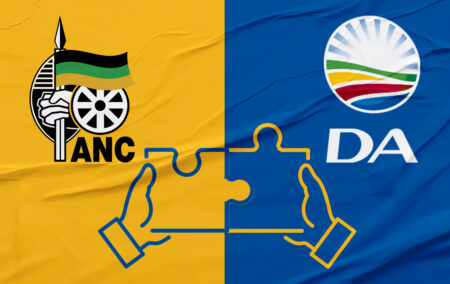The results of a new survey commissioned by The Brenthurst Foundation show that a strong majority of South Africans approve of the GNU despite the falling out of the two main parties – the ANC and the DA – over a series of issues in recent months.
Voters were positive about the GNU despite 72% saying SA’s economy was in bad shape, and more than half indicating that their current living conditions were difficult.
The survey was conducted by SABI Strategy and involved 20-minute interviews with 3,837 South Africans between 24 February and 11 March 2025.
The survey found that some 57% of voters believe the GNU is performing well while 60% say it is performing better than the previous ANC-only government.
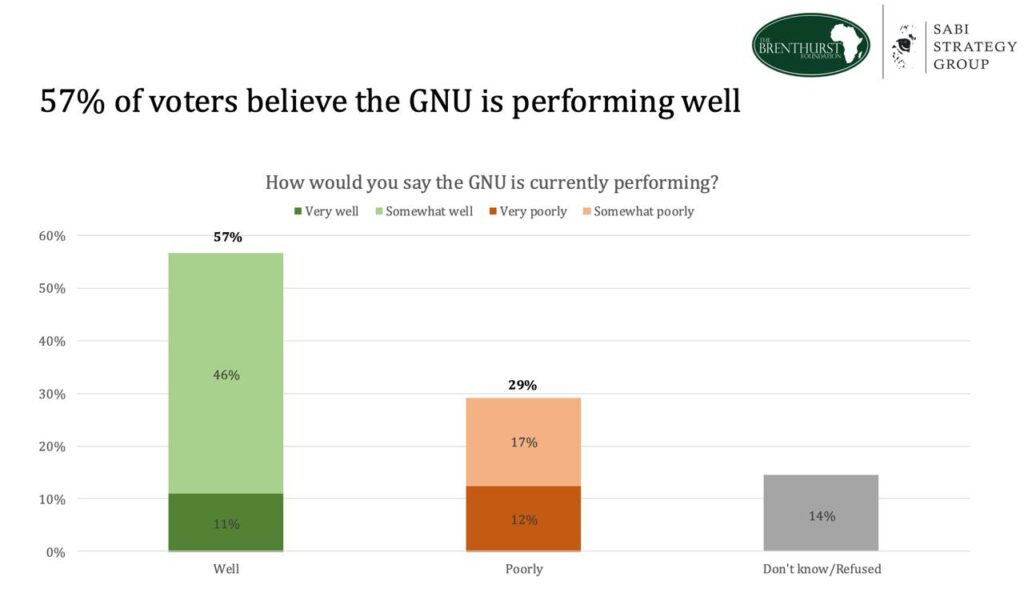
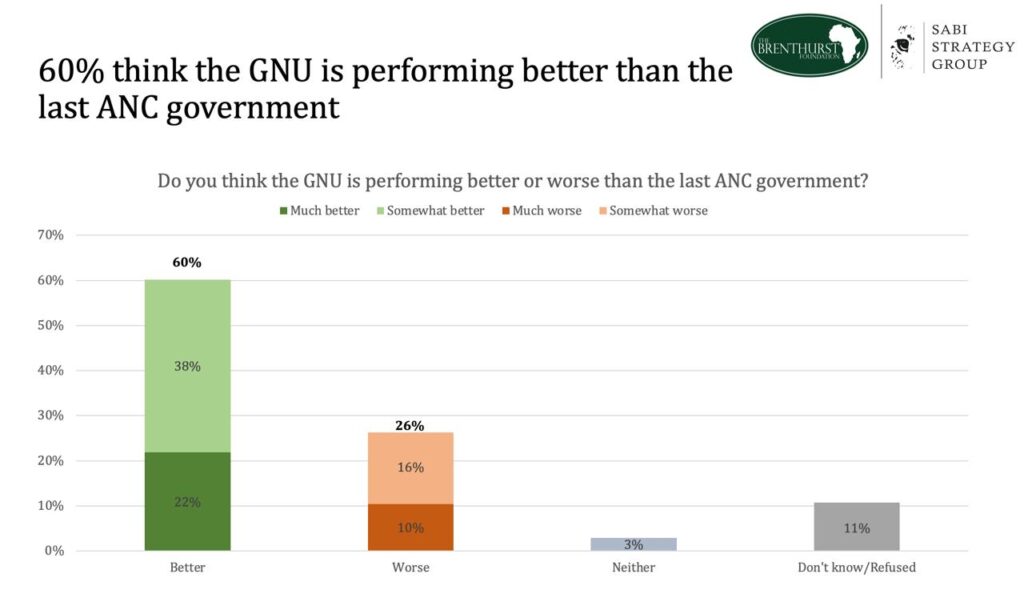
Both the ANC and the DA have improved their voter support since the May 2024 election. When modelled for a voter turnout of 58% (the May 2024 result), the ANC wins 43% (40% in 2024), and the DA 27% (22%). Losing ground are the MK Party with 11% (15%) and the EFF with 7% (10%), both vocal critics of the GNU.
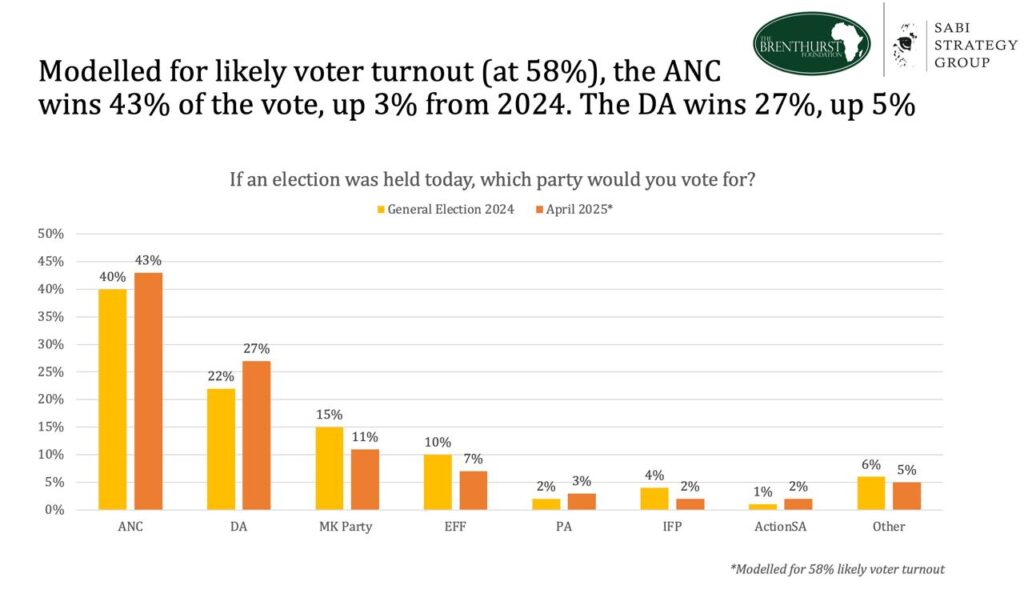
The DA is recognized for its governance record. More voters (29%) said the DA was “most effective at governing” compared to the ANC (24%). The DA’s contribution in this respect is understood beyond the Western Cape. Although home to just 7.6% of the population, similarly 29% of South Africans believe that Cape Town is the best-run Metro.
With municipal elections looming, more voters said they preferred an ANC-DA coalition (31%) to the 10-party coalition that currently makes up the GNU (20%) or an ANC-EFF coalition (16%) at municipal level. Least favoured was an ANC-MK coalition (4%).
Net favourability
The GNU has a better net favourability among voters (-1%) than any political party with the ANC (-2%) and the DA (-15%) following behind. Parties strongly opposed to the GNU have the worst net favourability with the EFF and MK Party both registering -34%.
In addition, more than half of voters found five ministries run by opposition parties – Sports, Arts and Culture, Basic Education, Agriculture, Home Affairs, and Communications – to be “performing well”. Only 46% of South Africans believe that the presidency is performing well.
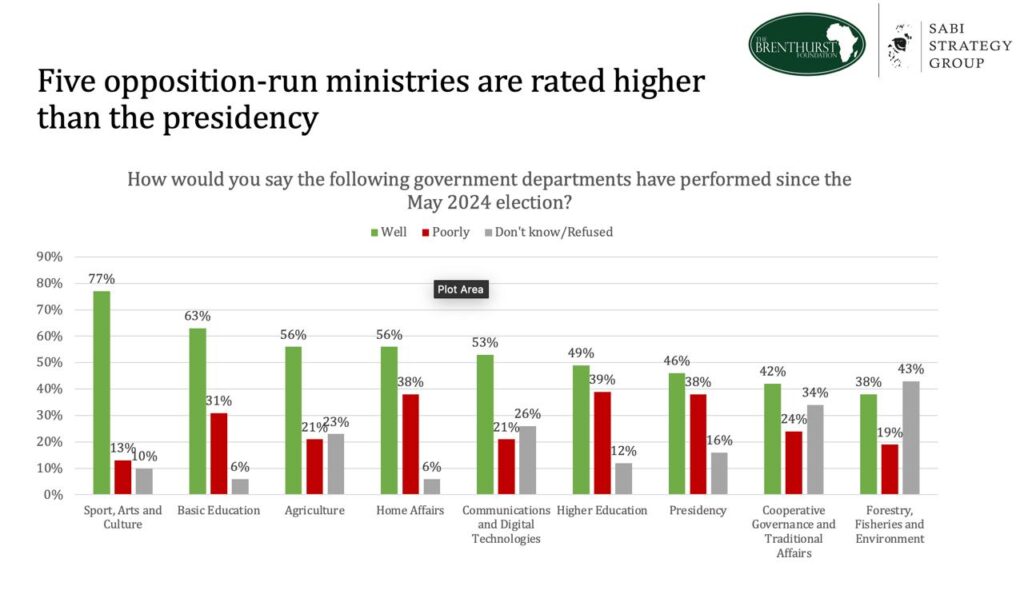
Only 30% believe that International Relations and Co-operation (Dirco) is also performing well. Other laggards scoring low on “performing well” included Finance (37%), Water and Sanitation (35%) and Electricity and Energy (28%).
The low score for Dirco appears to be the result of a series of diplomatic blunders which have seen South Africa alienating traditional partners such as the US while encouraging relations with Russia and China.
The survey showed voters were evenly split at 59% on South Africa having closer ties with the EU, the US and China, strengthening the view that the country ought to stick to its policy of non-alignment rather than shift into one or another global power bloc. Only 43% of South Africans favour stronger ties with Russia.
In addition, some 81% said the country should do more to “promote democracy in Africa”.
On the economy respondents were also pessimistic, with most saying South Africa’s “economic condition” was poor.
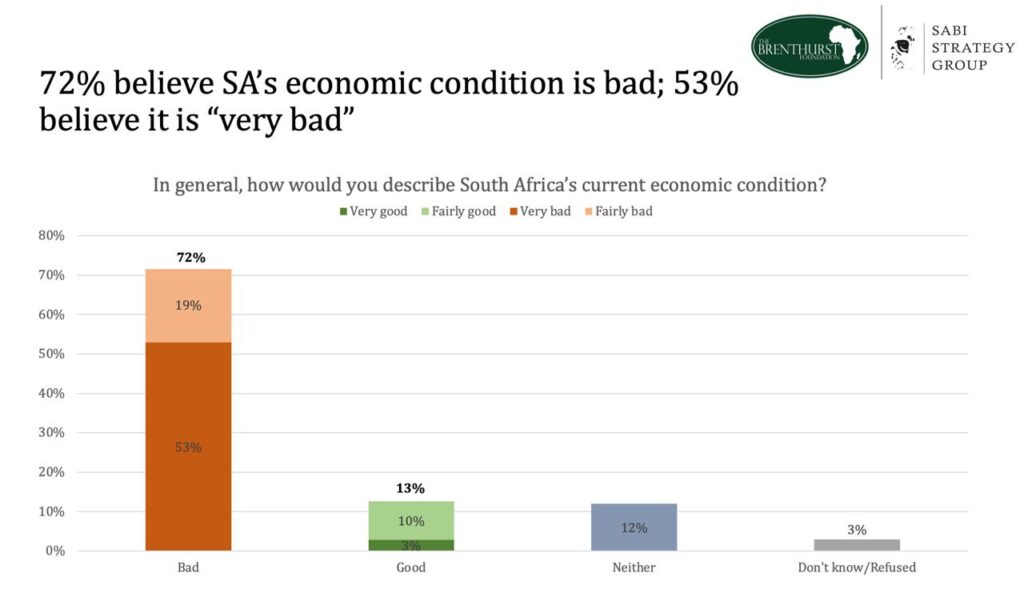
Disastrous budgeting process
The Finance Ministry’s disastrous budgeting process appears to have disappointed voters despite more than half saying the economy was “performing better under the GNU than the previous ANC government”.
The country’s escalating water crisis and the return to load-shedding in February and March after a long reprieve also appear to have soured voter opinion.
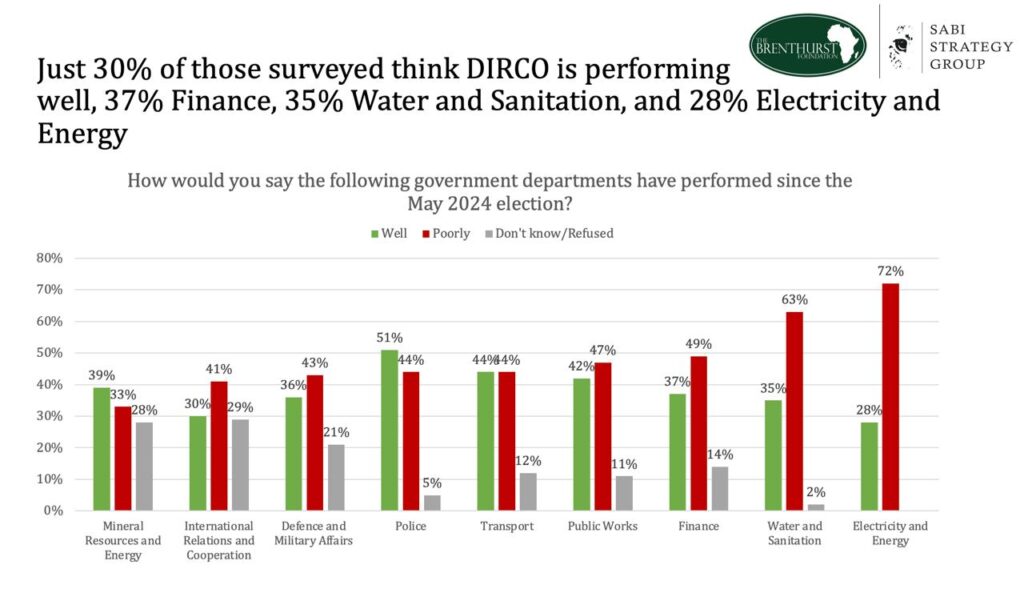
While 55% said that US President Donald Trump’s executive order halting aid to South Africa was unjustified, 49% said that Ramaphosa or the ANC were “responsible for the consequences of this US Executive Order”. Only 16% said that the lobby group, AfriForum, was responsible.
With the municipal elections coming up in the next 18 months, these results should inform party sentiment about whether or not to continue with the GNU. Already 20% of voters rate unemployment as the top issue over illegal immigration (11%), corruption (9%) and crime (7%).
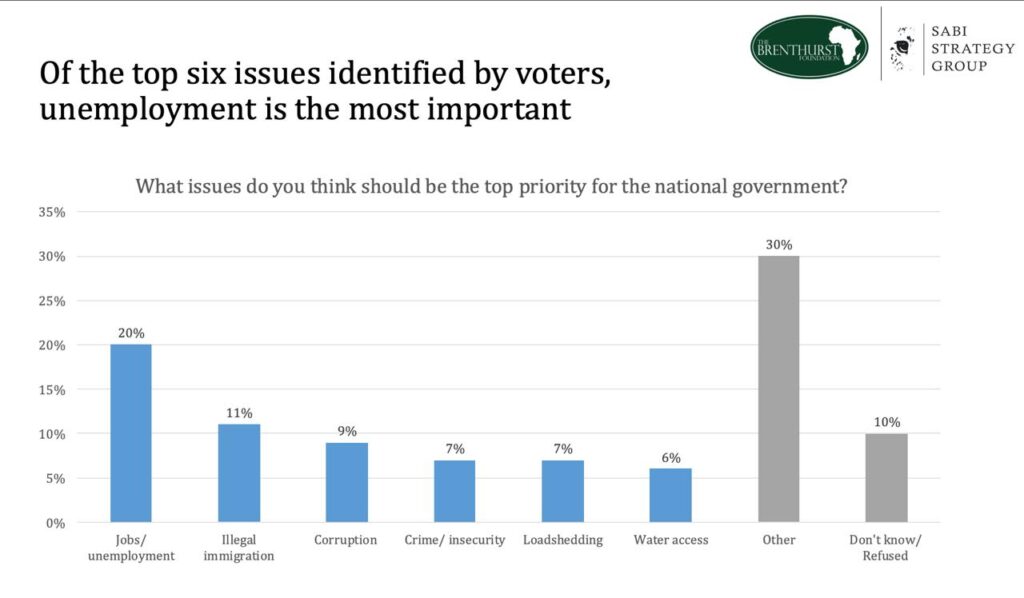
What is clearer today is that a voluntary exit or expulsion from the GNU is unlikely to be looked upon favourably by voters given the economic circumstances in which they have found themselves. The GNU’s following suggests that no party should take voter support for granted.
The full survey is available here.
The views of these writers are not necessarily the views of the Daily Friend or the IRR.
If you like what you have just read, support the Daily Friend

